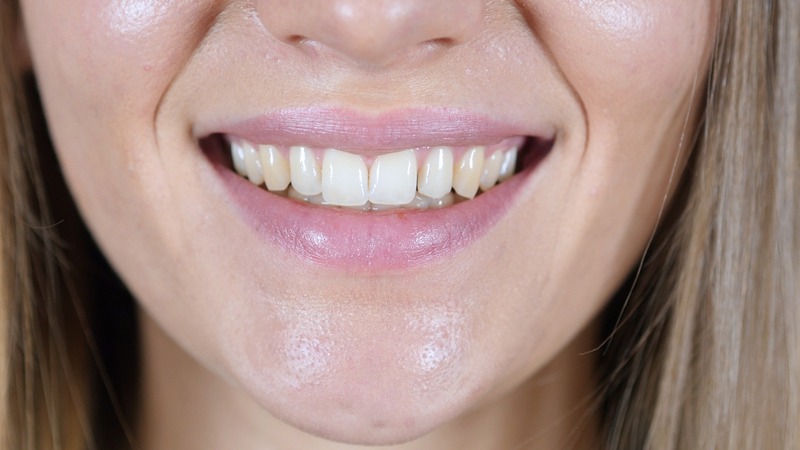How Does Stress Affect My Oral Health?
Stress is a common aspect of modern life, influencing various facets of our well-being. While its impact on mental and physical health is widely recognized, many people overlook the effects stress can have on oral health. Unmanaged stress can lead to a range of dental issues, from gum disease to tooth damage. Understanding these effects is key to maintaining not only a healthy smile but also overall health.
Connections Between Stress and Oral Health Problems
When your body is under stress, it reacts in ways that can be harmful to your mouth. The stress hormone cortisol, for instance, can contribute to the inflammation of gums, exacerbating conditions like gingivitis and periodontitis. High-stress levels might also cause you to adopt harmful oral habits without even realizing it.
Gum Disease and Infections
One of the most prominent ways stress affects oral health is through the development of gum disease. Chronic stress weakens the immune system, which can make your mouth more vulnerable to infections like periodontal disease. Signs of gum disease include:
-
Red, swollen, or bleeding gums
-
Bad breath
-
Loose teeth
Teeth Grinding and Jaw Disorders
Stress often leads to teeth grinding, also known as bruxism, which usually occurs during sleep but can also happen during the day. This habit can cause:
-
Worn-down teeth
-
Cracked or chipped teeth
-
Jaw pain or temporomandibular joint disorders (TMD)
Oral Hygiene Neglect
Being overwhelmed with stress can result in neglecting daily dental care routines. Skipping regular brushing and flossing because you’re too tired or distracted allows plaque to build up, which can lead to tooth decay and gum disease.
Impact of Stress-related Illnesses and Medications
Stress-related illnesses can indirectly contribute to dental problems. For example, conditions such as depression or anxiety might lead to dry mouth, increasing the risk of decay as saliva helps to protect teeth from bacteria. Additionally, certain medications prescribed for stress-related issues can have side effects like dry mouth or altered taste, further affecting oral health.
Minimizing Stress for Better Oral Health
Since stress can affect oral health in numerous ways, it’s crucial to incorporate stress-reduction techniques into daily life. Some beneficial practices include:
-
Regular physical exercise
-
Ample sleep and rest
-
Time management
-
Meditation or deep-breathing exercises
-
Mindfulness practices
By prioritizing self-care and stress management, you can protect your oral health and foster a more resilient immune response against dental issues.
Maintaining Oral Health During Stressful Times
It’s important to maintain consistent oral hygiene habits, visit a dental professional regularly, and be proactive in dealing with dental issues, regardless of your stress levels. Seeking professional treatment is essential, especially for conditions that can be exacerbated by stress, such as seeking professional treatment that might include services like high-quality dental bridges in Cumming, GA, which can restore any lost teeth and help regain your confidence in your smile.
Seeking Help for Teeth Grinding
If you’re experiencing teeth grinding, a tailor-made mouthguard from your dentist can protect your teeth from damage caused by clenching and grinding. Talking to your dentist about your symptoms will enable them to provide a customized solution to protect your oral health.
Oral Health and Psychological Well-being
Your mental health significantly impacts your overall well-being, including oral health. Conditions such as anxiety or depression can manifest in various physical ways, including in your mouth. Conversely, oral health problems can also affect your self-esteem and contribute to psychological stress, creating a cycle that can be hard to break without the proper care and attention.
Improving Oral Health with Cosmetic Procedures
Improving the appearance of your teeth with cosmetic dental procedures can boost self-confidence and reduce stress. Whether it involves teeth whitening, orthodontics, or veneers, enhancing your smile can positively impact your mental health. If you’re considering cosmetic options, consulting with a trustworthy cosmetic dentist in Cumming can guide you through choices that suit your individual needs and help alleviate stress related to dental imperfections.
Dental Emergency Preparedness
To reduce stress regarding potential dental emergencies, it’s helpful to:
-
Have a dental emergency kit ready
-
Know your dentist’s emergency contact information
-
Be informed about basic first-aid for common dental emergencies
This preparedness can ease your mind, knowing you’re ready to handle unexpected dental issues swiftly.
Stress, Diet, and Oral Health
Diet plays a critical role in managing stress levels and oral health. Consuming a balanced and nutritious diet helps fortify your body’s defenses against stress-related oral health issues. On the flip side, stress can lead to poor eating habits, like increased consumption of sugary and acidic foods, which can damage teeth and gums.
Incorporating foods that are beneficial for oral health into your diet is vital. These include:
-
Leafy greens, rich in vitamins and minerals
-
Dairy products, which can neutralize acids in your mouth
-
Crunchy fruits and vegetables, which help clean teeth naturally
A professional dental team can provide a thorough examination of your oral health and offer treatment for stress-related conditions. Regular dental check-ups are especially important in high stress as they can catch early signs of problems. Opting for practices like those exemplified by North Atlanta Family Dentistry in Cumming, GA, known for comprehensive care, can ensure that your oral health remains a priority even during the most stressful periods.
Final Thoughts
Stress can have profound effects on your oral health, contributing to a range of issues from gum disease to teeth grinding. It’s imperative to manage stress through lifestyle changes and self-care routines, maintain diligent oral hygiene, and seek regular dental care. Addressing stress-related oral health problems not only improves your dental health but can also enhance your overall quality of life. By taking these steps, you can maintain a healthy and happy mouth regardless of life’s challenges.
Categories

Recent Posts
Theme by The WP Club . Proudly powered by WordPress

